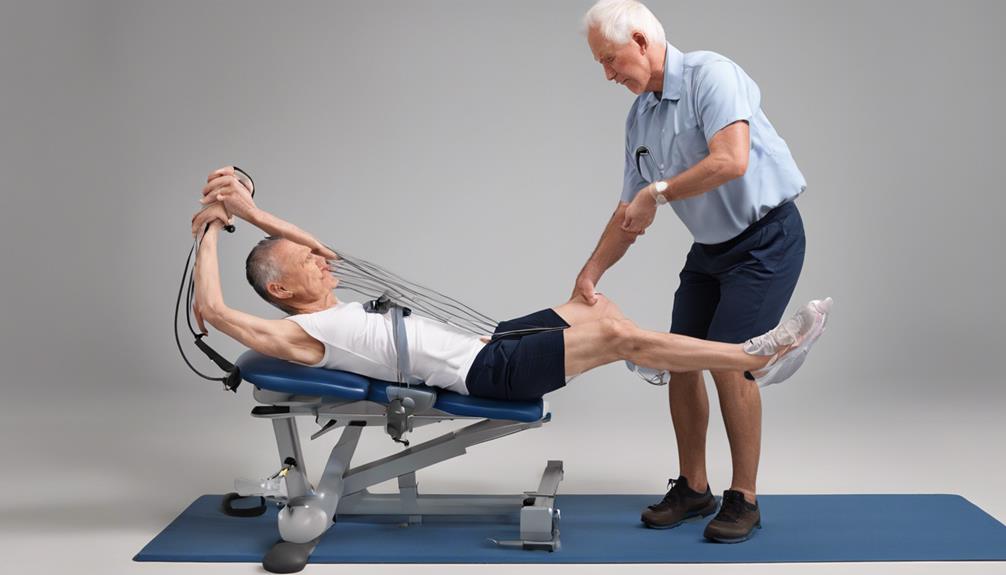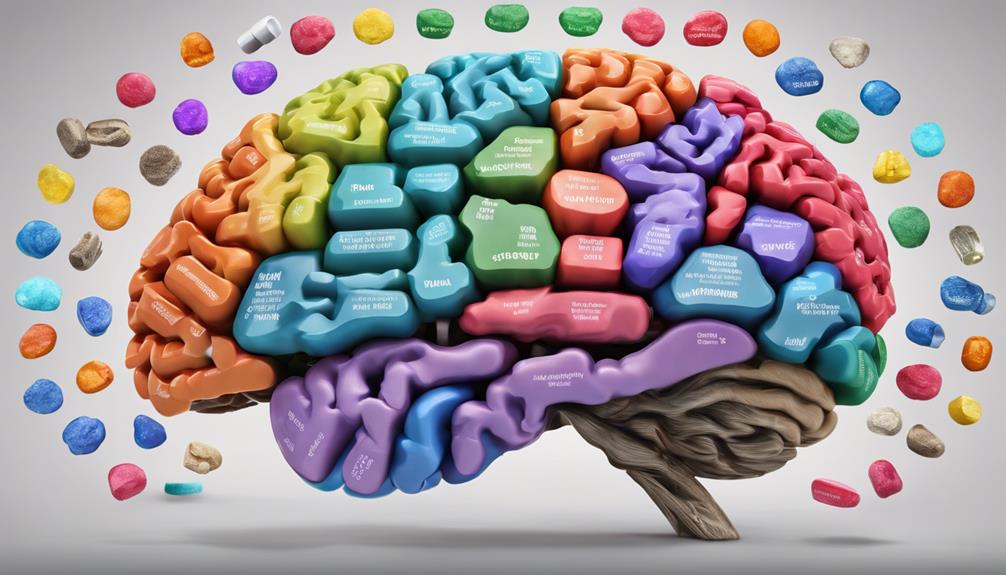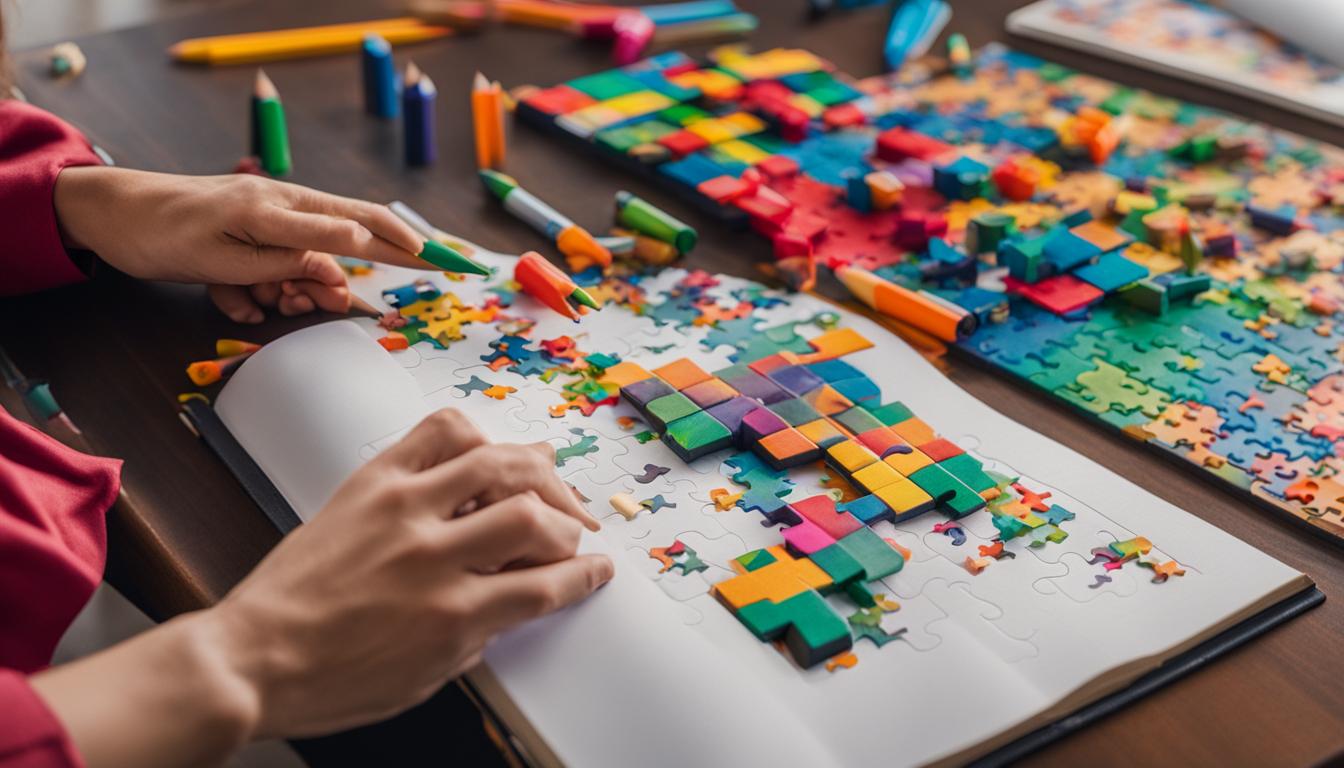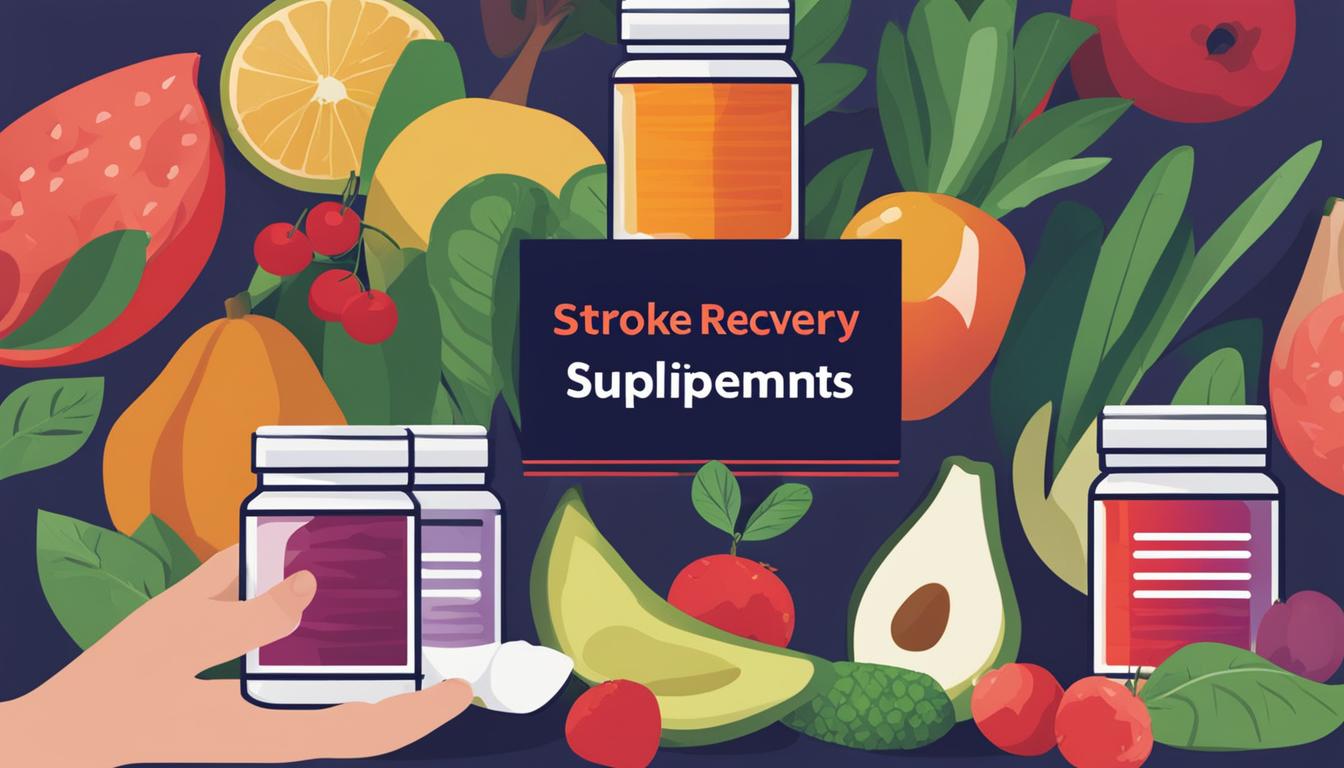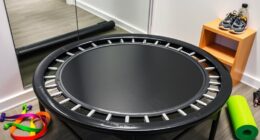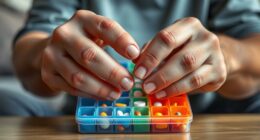Throughout the rehabilitation process following a left MCA stroke, patients encounter a demanding path that can be compared to unraveling a intricate puzzle, as the pieces slowly start to fall into place.
The process of regaining function and independence after a left MCA stroke can be challenging, but understanding the intricacies of recovery and the various treatment options available is crucial to the journey ahead.
From exploring the obstacles faced during recovery to uncovering the strategies that pave the way to progress, there's much to explore in the realm of left MCA stroke recovery.
Key Takeaways
- Speech therapy crucial for language processing difficulties
- Rehabilitation focuses on restoring motor and cognitive functions
- Early intervention and tailored care plans maximize recovery potential
- Comprehensive care plan combining treatments optimizes outcomes
Understanding Left MCA Stroke Recovery
Understanding the recovery process after a left MCA stroke involves analyzing the impact on motor function, speech, and cognitive abilities in individuals affected by this specific type of stroke. Rehabilitation for left MCA stroke survivors focuses on restoring these functions, which may be impaired due to damage in the brain's left hemisphere.
Speech therapy plays a crucial role in addressing language processing difficulties that can arise post-stroke, aiding in communication restoration. Additionally, cognitive function rehabilitation targets areas such as memory, attention, and problem-solving skills that may be affected.
Spatial awareness challenges, common in left MCA stroke survivors, are addressed through specific exercises to improve perception and navigation skills. Hemiplegia, a paralysis affecting one side of the body, requires targeted physical therapy to enhance motor function and regain strength.
Challenges in Recovery Process
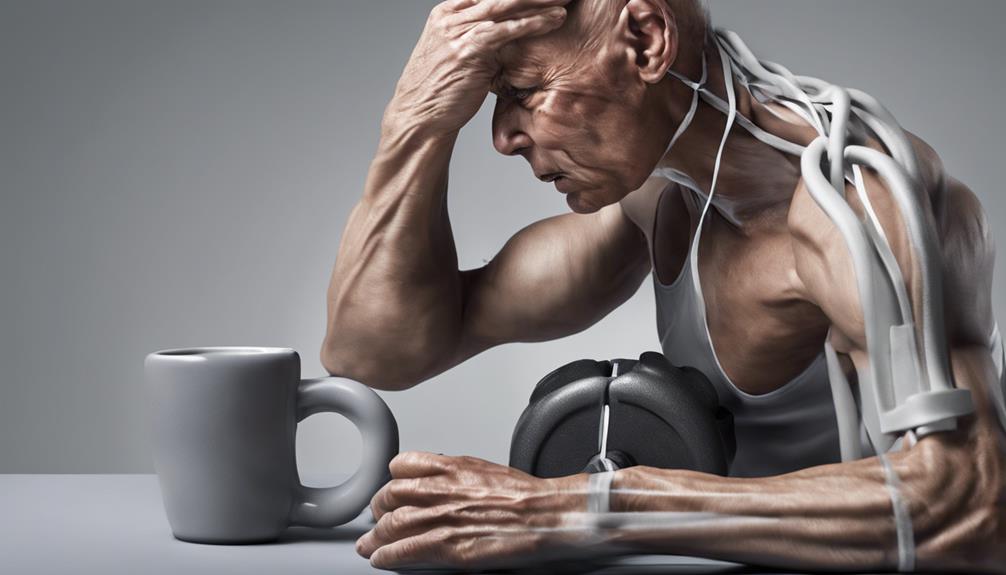
Recovery after a left MCA stroke presents various challenges, including difficulties with hand function due to damage in the right hemisphere. Impaired upper limb coordination and dexterity can significantly impede daily activities post-left MCA stroke.
Cognitive deficits like neglect and impulsivity may complicate rehabilitation efforts, requiring tailored approaches for effective recovery. Emotional changes such as mood swings and frustration could profoundly impact the individual's journey following a left MCA stroke, necessitating holistic support during the recovery process.
Left MCA stroke survivors often face challenges related to facial weakness and speech difficulties, highlighting the importance of specialized interventions to address these specific issues. The intricate nature of brain damage resulting from a left MCA stroke underscores the multifaceted challenges individuals may encounter, emphasizing the need for comprehensive rehabilitation strategies to enhance recovery outcomes and improve overall quality of life.
Treatment Options for Left MCA Stroke
Treatment options for left MCA stroke may vary depending on the severity of the condition and may encompass clot-dissolving medications, surgical interventions, and targeted rehabilitation strategies. When facing a left MCA stroke, utilizing tissue plasminogen activator (tPA) to dissolve blood clots blocking the artery becomes a crucial intervention. Surgical procedures like mechanical embolectomy or craniotomy may be necessary in more severe cases to restore blood flow and prevent further damage. Additionally, rehabilitation plays a vital role in the recovery process, focusing on physical, occupational, and speech therapy to improve motor skills and cognitive functions. Developing a comprehensive care plan that combines these treatment modalities is essential for optimizing outcomes in left MCA stroke patients.
| Treatment | Description | Importance |
|---|---|---|
| tPA Administration | Clot-dissolving medication to restore blood flow | Vital for acute stroke care |
| Surgical Interventions | Procedures like embolectomy or craniotomy for severe cases | Restoring blood flow |
| Rehabilitation | Physical, occupational, and speech therapy for recovery | Enhancing motor and cognitive functions |
Strategies for Regaining Independence
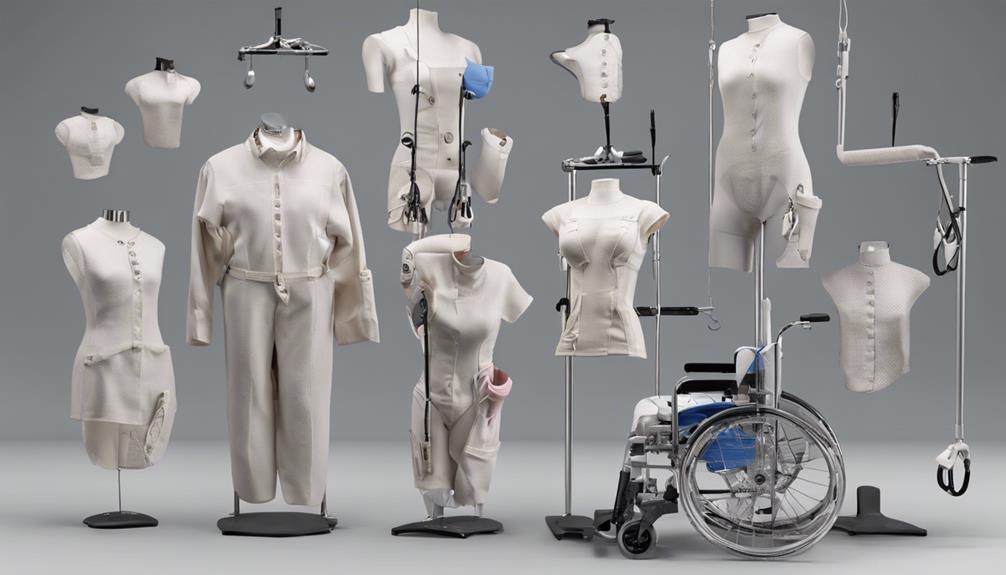
During the rehabilitation phase following a left MCA stroke, individuals focus on intensive physical and occupational therapy to regain functional independence. Here are key strategies for regaining independence:
- Incorporate Speech Therapy: Addressing language deficits and improving communication skills are crucial aspects of recovery post left MCA stroke. Speech therapy plays a vital role in enhancing these abilities, aiding in effective communication and social interactions.
- Utilize Assistive Devices and Adaptive Equipment: To support daily activities and promote independence, individuals can benefit from using assistive devices and adaptive equipment. These tools help in overcoming physical limitations and facilitate engagement in daily tasks with greater ease.
- Engage in Cognitive Rehabilitation: Cognitive functions such as memory, attention, and problem-solving abilities may be affected by a left MCA stroke. Cognitive rehabilitation interventions can help in enhancing these functions, enabling individuals to regain cognitive skills and improve overall quality of life.
Progress and Recovery Expectations
In the progression of recovery following a left MCA stroke, individual factors such as severity, health status, and response to treatment play a significant role. Rehabilitation post-left MCA strokes primarily aims at restoring motor and cognitive functions impacted by the stroke.
Expected recovery outcomes for individuals with left MCA strokes may encompass enhancements in walking ability, speech, and daily living skills. Long-term effects of recovery involve continuous therapy, lifestyle modifications, and vigilance for potential complications.
Recovery expectations stress the significance of early intervention, tailored rehabilitation programs, and personalized care plans. By focusing on regaining motor and cognitive functions, individuals can work towards improving their quality of life after a left MCA stroke. Implementing lifestyle adjustments and adhering to individualized care plans can further enhance the recovery process.
Early intervention and dedicated rehabilitation efforts are crucial for maximizing recovery potential and enhancing overall well-being post-left MCA stroke.
Frequently Asked Questions
Can You Return to Normal After a Massive Stroke?
We can return to normal after a massive stroke. Recovery varies based on the extent of brain damage and individual factors. With intensive rehabilitation and support, many achieve near pre-stroke function levels.
Complete recovery to normal is less common, but significant improvements in function and quality of life are possible. Long-term efforts in physical and occupational therapy are crucial for maximizing recovery potential.
Each person's journey is unique and involves ongoing challenges and adjustments.
What Happens in the First 3 Days After a Stroke?
In the first 3 days after a stroke, immediate medical care is vital. Assessments gauge the stroke's impact, identify deficits, and plan rehab. Treatments include clot-dissolving meds and BP management.
Early mobilization exercises and assessments jumpstart recovery. Family support is crucial for understanding and coping during this critical period.
How Long Does It Take for the Brain to Settle After a Stroke?
After a stroke, the brain's settling time varies based on health and stroke severity, lasting weeks to months. Recovery progresses for up to a year or more, with improvements in motor skills and cognition.
Rehabilitation, like therapy, is vital for brain settling and functional recovery. The brain's neuroplasticity enables ongoing changes post-stroke.
Regular assessments and adjusting rehab strategies aid in optimizing recovery trajectory.
What Are Good Signs After a Stroke?
After a stroke, good signs include:
- Regaining independent walking ability
- Improving motor function in lower extremities
- Showing better coordination in affected limbs
Strengthening and better control of arm and leg muscles are positive indicators. Effective rehabilitation leading to increased independence in daily activities is promising. These signs suggest progress in recovery post-stroke.
Conclusion
In conclusion, left MCA stroke recovery is a challenging but achievable process through dedicated rehabilitation. Despite potential setbacks, such as slow progress or frustration, consistent therapy and hard work can lead to significant improvements in motor function and quality of life.
It’s crucial to remember that recovery is a gradual journey, and with patience and persistence, stroke survivors can regain independence and reach their goals. It’s never too late to start the journey towards recovery. Every step taken, no matter how small, contributes to overall progress, and each achievement should be celebrated along the way. Families and caregivers play an essential role in providing encouragement and support, making it important to engage them in the process. Utilizing mini stroke recovery strategies can also enhance rehabilitation efforts and foster a sense of empowerment for survivors as they navigate their unique paths to healing.
